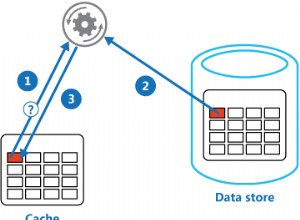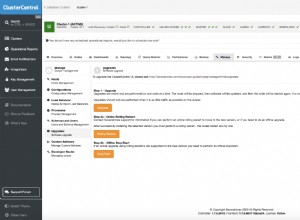Możesz użyć małego skryptu Lua, aby wykonać przyrost w samym Redis, tak aby był zasadniczo jednowątkowy:
127.0.0.1:6379> set CappedInt 7
OK
127.0.0.1:6379> eval "local c=redis.call(ARGV[1],KEYS[1])+0;if c<10 then return redis.call('INCR',KEYS[1]); else return 10; end" 1 CappedInt get
(integer) 8
127.0.0.1:6379> eval "local c=redis.call(ARGV[1],KEYS[1])+0;if c<10 then return redis.call('INCR',KEYS[1]); else return 10; end" 1 CappedInt get
(integer) 9
127.0.0.1:6379> eval "local c=redis.call(ARGV[1],KEYS[1])+0;if c<10 then return redis.call('INCR',KEYS[1]); else return 10; end" 1 CappedInt get
(integer) 10
127.0.0.1:6379> eval "local c=redis.call(ARGV[1],KEYS[1])+0;if c<10 then return redis.call('INCR',KEYS[1]); else return 10; end" 1 CappedInt get
(integer) 10
Zamiast wpisywać skrypt, możesz również umieścić kod Lua w pliku o nazwie IncWithCap.lua tak:
local cap=10
if(redis.call(ARGV[1],KEYS[1])+0 < cap) then
return redis.call('INCR',KEYS[1])
end
return cap
Następnie możesz załadować go do Redis za pomocą:
redis-cli SCRIPT LOAD "$(cat IncWithCap.lua)"
Przykładowe wyjście
"6e6ad88c9a2b7dfdade9c5763467aaab2358d4e1"
Następnie możesz zadzwonić/wykonać to za pomocą:
127.0.0.1:6379> evalsha 6e6ad88c9a2b7dfdade9c5763467aaab2358d4e1 1 CappedInt get




